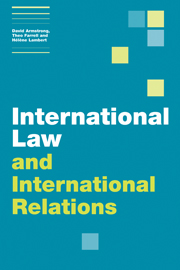6 - International crimes
Published online by Cambridge University Press: 05 June 2012
Summary
International criminal law is a relatively new area of law. Traditionally and in general, the state has exercised jurisdiction over the definition and prosecution of crimes committed on its territory and/or by its subjects/citizens. Piracy has been an important exception, in that for hundreds of years it has been recognised as a crime for which all states could exercise jurisdiction, regardless of where the crime of piracy was committed and the nationality of the pirates. In the nineteenth century, states began to develop treaty law to regulate the conduct of warfare. States also began to recognise the most serious violations of these laws of armed conflict (LOAC) as incurring individual criminal liability over which extraterritorial jurisdiction might be exercised. In the twentieth century, and especially following World War II (WWII), states began to develop substantive and procedural rules on international crimes, including serious violations of LOAC, crimes against humanity and the crimes of genocide, torture and terrorism. The underlying principle is one of universal jurisdiction, exercisable by states and competent international criminal tribunals and courts, for crimes that are generally considered to be especially heinous.
International crimes cover a wide range of offences, with the spectrum running from drugs trafficking and the sex trade at the one end, to acts of terrorism, wars of aggression and genocide at the other end. This chapter focuses on the more serious end of this spectrum.
- Type
- Chapter
- Information
- International Law and International Relations , pp. 178 - 221Publisher: Cambridge University PressPrint publication year: 2007

